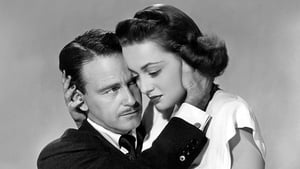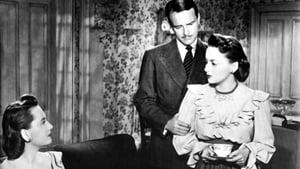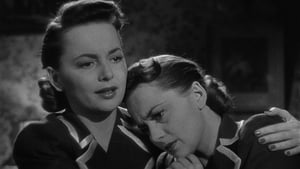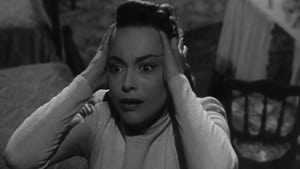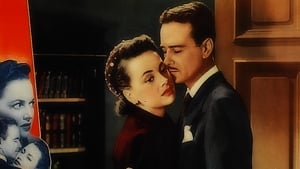Video Sources 0 Views
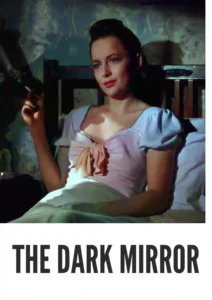
Synopsis

Step into a world of psychological suspense with The Dark Mirror, a gripping film noir masterpiece from 1946, now beautifully colorized for a viewing experience that brings new depth to its chilling tale. Starring the exceptional Olivia de Havilland, this film delves into the complex themes of identity, suspicion, and the duality of human nature. Perfect for fans of classic film noir and psychological thrillers, this HD download offers a chance to see a timeless classic in a fresh, captivating light. Originally released as The Dark Mirror, and sometimes referred to as Twins of Evil, the film continues to captivate audiences with its suspenseful plot and brilliant performances.
The Dark Mirror centers around the murder of Dr. Frank Peralta, and the prime suspect is one of two identical twin sisters, Ruth and Terry Collins, both played by Olivia de Havilland.As Detective Lieutenant Stevenson (Thomas Mitchell) investigates, he finds himself in a perplexing situation: both sisters have alibis, and there is no apparent way to distinguish between them. To unravel the truth, he enlists the help of Dr. Scott Elliott (Lew Ayres), a psychologist specializing in twin behavior. Dr. Elliott develops a series of psychological tests designed to expose the true killer. The film explores the complex relationship between the twins, revealing hidden jealousies, suppressed emotions, and a dark secret that ultimately leads to the exposure of the guilty sister. With its clever plot twists and suspenseful atmosphere, The Dark Mirror is a compelling exploration of the darker side of human psychology.
The film boasts a stellar cast of actors who bring this intricate story to life:
- Olivia de Havilland as Ruth Collins/Terry Collins
- Lew Ayres as Dr. Scott Elliott
- Thomas Mitchell as Detective Lieutenant Stevenson
- Dane Clark as Rusty
- Garry Owen as District Attorney Girard
The Dark Mirror is a psychological film noir, blending elements of mystery, suspense, and psychological drama. Its shadowy cinematography, intricate plot, and exploration of complex characters make it a standout example of the genre.
Released in 1946, The Dark Mirror reflects the post-World War II fascination with psychology and the exploration of the human psyche. The film taps into anxieties about identity, trust, and the hidden darkness that can lurk beneath the surface of seemingly normal individuals. Olivia de Havilland’s compelling performance as both twins is a testament to her skill and versatility, solidifying her status as one of Hollywood’s leading actresses. The film’s success also highlights the growing popularity of film noir, a genre known for its dark themes, moral ambiguity, and stylish visuals.
This colorized version of The Dark Mirror has been carefully restored using state-of-the-art digital techniques, enhancing the visual experience while maintaining the film’s original mood of suspense and intrigue. The colorization process involved a meticulous analysis of the grayscale tones in the original black and white footage, with colors thoughtfully chosen to complement the narrative and enhance the emotional impact of each scene. Advanced algorithms were employed for color palette selection and image enhancement. This painstaking process breathes new life into the characters and settings, making the story even more accessible and engaging for contemporary viewers. While debates about colorizing classic films persist, this version aims to introduce The Dark Mirror to a wider audience, ensuring its continued appreciation for generations to come.
- : Robert Siodmak
- : Nunnally Johnson
- : Vladimir Pozner
- : Milton R. Krasner
- : Ernest Nims
- : Dimitri Tiomkin
- : International Pictures
- : Universal Pictures
- : 85 minutes
- : MP4
- : HD (1080p)
- : Compatible with most devices, including smartphones, tablets, computers, and smart TVs.
The Dark Mirror (1946) is celebrated for its compelling performances, intricate plot, and exploration of psychological themes. Olivia de Havilland’s dual role is particularly praised, showcasing her ability to portray both innocence and malevolence with equal conviction. The film is recognized as a significant contribution to the film noir genre, highlighting the anxieties and complexities of the post-war era. As a thought-provoking and suspenseful thriller, The Dark Mirror continues to resonate with audiences and critics alike.
- : What is The Dark Mirror about?
- A: The Dark Mirror is a psychological thriller about twin sisters, one of whom is suspected of murder, leading to a complex investigation involving psychological analysis.
- : Is The Dark Mirror (1946) a well-known film noir?
- A: The Dark Mirror is a highly regarded film noir known for its suspenseful plot, strong performances, and exploration of psychological themes.
- : Is this version of The Dark Mirror colorized?
- A: Yes, this version has been professionally colorized to enhance the viewing experience.
- : What makes The Dark Mirror interesting for film noir fans?
- A: The Dark Mirror offers a compelling blend of mystery, suspense, and psychological drama, with a focus on complex characters and a dark, atmospheric setting.
- : What is the download format?
- A: The download format is MP4, which is compatible with most devices.
- : What resolution is the download?
- A: The resolution is HD (1080p), providing a high-quality viewing experience.
Watch The Dark Mirror Today!
